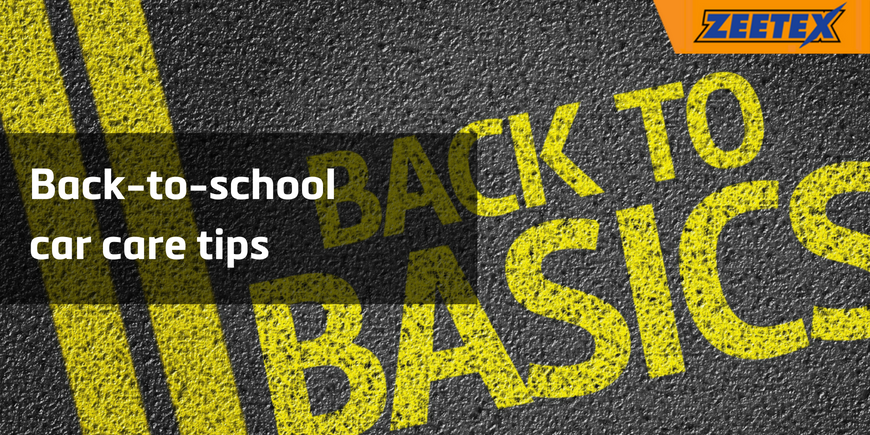September is the back-to-school month. This means for some parents driving their children back and forth to and from school. For college students it might mean driving to their faculty to attend classes and back. Some students, the ones who live not too far from their university, might use their car to go back to their hometown on weekends, which sometime can lead to 1-2 hours of driving often under the rain.
Whether you are a student or a parent, before getting back into the school routine you might want to double-check that your car is in order. Here we give some basic but essential tips to make sure your back-to-school is as smooth as possible:
- Tyres – Improper tyre pressure could lead to a higher consume of petrol (= less kms per litre). It can also increase wear and tear, which could force you to replace your tyres sooner than expected. It’s good practice to check your tyre pressure monthly and also to check for wear and tear by inserting an upside-down penny in the tread groove. If you can see the side top of the coin, you might need to start considering replacing the tyres.
- Fluids – Checking the fluids means regular oil changes but it also means checking on the transmission, brakes, coolants and last but not least the windshield wiper fluid, which needs to be topped up to ensure you have good visibility in poor weather.
- Seatbelts – Wearing a seatbelt is one of the most effective ways to avoid serious injury in an accident. Airbags alone are not enough to protect you. Make sure your seatbelt is on and secured tightly across the pelvis and rib cage.
- Lights – Malfunctioning headlights can impair the visibility of your car, which can bevery dangerous at night or in poor weather conditions. On the other hand, failing rear lights make it hard for other cars to see you. Turn your lights on while the car is in park, and walk around the entire vehicle to make sure your headlights, rear lights, blinkers and hazards are functioning properly. Replace any broken bulbs as soon as possible.
- Brakes – Worn brakes impede your ability to stop quickly and can cause your car to travel farther before coming to a halt — making it more likely you’ll find yourself in an accident. To avoid that, a professional mechanic should check your vehicle’s brakes regularly, preferably as part of a routine maintenance check performed during regular oil changes.
- Battery – There’s nothing worse than coming out of classes after a long day, only to find your car won’t start. If your car is sluggish to start or if the dashboard lights or radio are giving you trouble, it may be a sign you need a new battery. Also, batteries only last three to five years, so if you’ve had yours a long time, it’s probably time for a new one. Your mechanic can test your battery during routine maintenance and oil changes.



